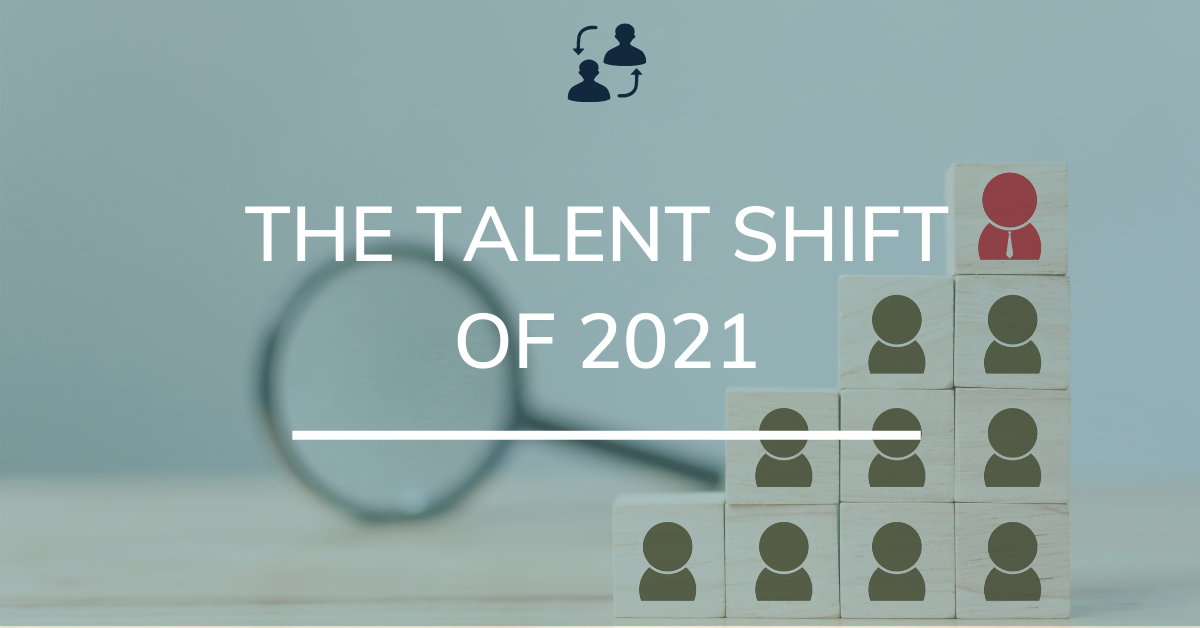Pre-2020, Unemployment in Australia and the UK was the lowest it’s been since 2011 and investment into Employer Branding was at an all time high in order to attract the right type of talent.
Then post COVID, Australia reached a record high unemployment rate of 7.62% in June 2020 and UK’s rate is expected to grow from 4.9% to 7.7% by June 2021 according to the Bank of England.
Global market changes have created unexpected demand in certain industries and the shift to remote work models has broadened the scope for companies to access skills from all over the world. Greater pressures have been placed on hiring practises with increased focus on Diversity and Inclusion.
The employment market is changing and new challenges are emerging everyday, but with that comes great opportunity. Here’s a few considerations that both Recruiters and Talent Acquisition professionals should be aware of to help them prepare for the Talent Shift of 2021 and beyond.
Unemployment
2020 was a tough year and many businesses were simply unable to survive. Whole industries like Hospitality and Travel for example, were forced to shut down operations and the impacts have been catastrophic.
Suddenly, the hiring landscape flooded with skilled workers who had been laid off, looking for new roles.
Whilst having a candidate rich marketplace can be beneficial for recruiters this also means they will need to work more efficiently to screen the best candidates from the just good enough ones. In hard-hit sectors like Hospitality, how can recruiters support candidates by identifying transferable skills that might be relevant for adjacent markets?
Job Security
Alongside escalating unemployment rates there’s also been a rising collective fear of leaving secure roles because of the economic uncertainty. People who are unhappy in their roles were delaying any thoughts of moving because they have a relatively good level of job security and would qualify for redundancy.
“Companies are seeing offer rejection rates increase as candidates think carefully about giving up job security to move to a new company.”
Lenka Burnett, Client Services Director at Korn Ferry.
This means opportunity is calling for recruiters to identify passive candidates in the market who may not be satisfied in their jobs, and would be open to moving if approached with attractive opportunities that are aligned to their future goals. Being proactive and warm them up with attractive offers that are aligned to their future goals
Global Talent Market
Companies that were reluctant to adopt new technologies were forced to adapt as the world’s biggest “working from home” experiment unfolded. The experiment seems to have paid off however, with more and more businesses beginning to open their minds to sourcing talent from all over the world. With that, the reliance on a traditional, centralised office space is being rethought too.
The shift to a remote-first working environment and the widespread adoption of collaboration tools and online conferencing software like Zoom means the talent market has gone fully global. This in turn presents a huge opportunity for recruiters to facilitate job movement.


“We envision a future where home-based work remains a permanent option for many organisations and the people working within them but one that is integrated within a network of organisational spaces.”
“Reimagining the Urban Office” Harvard Business Review.
Agencies can expand their operations and become truly global businesses. Understanding if current and future candidates are open to remote work first up means they can expand the geography of roles for which they would be open to shortlist for.
Emerging Industries
Shifting market conditions and global economic volatility has meant that previous labour market predictions are out the window. Recruiters will need to be on the front foot of new developments that affect them specifically. For example, the Groceries, Shipping and Logistics industries hit record hiring peaks at the start of the year, followed by a cooling off period.
The rising investment into Sustainability has meant the Environmental Sector has been trending upward in recent years, with companies across all industries and all continents needing to build these considerations into their business priorities.
Rethinking and reshaping the way you analyse job requirements and match talent, will allow you to creatively shortlist a vacancy when years of experience may not be achievable.
All of us are experiencing a phase of talent mobilisation – which can feel stressful for some. The opportunity for recruiters however, and the impact they can have on economic growth is promising. The emergence of new industries can create a square peg, round hole scenario.
Recruiters should work to understand candidates transferable skills to cross-sell into newly created roles. If done well, this supports candidate pools better with broadened opportunities. Smart recruiters should be leveraging the opportunities in the Talent Shift of 2021, helping their candidates find access to a wider breadth of life-changing work opportunities, and consulting closely with clients to help them achieve new business goals that will ensure they prosper long beyond the global health crisis.





